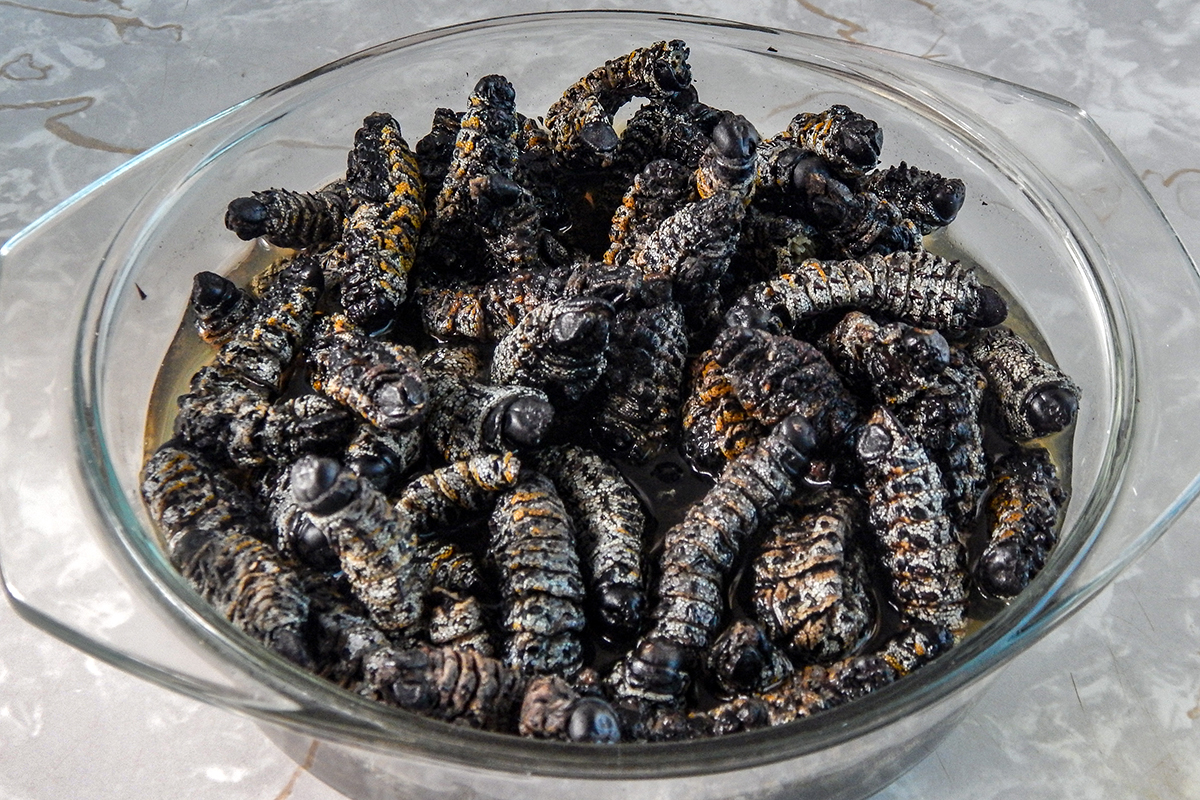It’s Mopane Worm season in Zimbabwe. Here are some things that you probably didn’t know about the worm.
1. Mopane worms become a moth
The worm is actually the larval stage of a moth called the Emperor Moth. The life cycle of the Emperor Moth begins with the adult moths laying eggs on the leaves of the mopane tree. The egg hatches the worm and eventually, the worm’s body becomes, pupae and then the moth. The best time to harvest Mopane is just before they become pupae.
2. Mopane worms are also farmed
They are not just found in the wild. These worms can be farmed. In Zimbabwe, Mopane Worms Enterprises is dedicated to the commercial farming of edible insects. The company sells mopane worms, mopane worms eggs, pupae, and moths.
In fact in 2005 one NGO released a short book called The “Farming Mopane Worms” guide which was available in English, Shona, and Ndebele.
3. Not just a Zimbabwean delicacy
Zimbabweans that have traveled beyond the country’s borders will tell you that Mopane worms are a delicacy in many countries in Southern Africa including South Africa (Limpopo and Mpumalanga provinces), Zambia, Botswana, and northern Namibia.
4. Mopane worms numbers are decreasing
Mopane worms are on the decline though specific numbers are hard to come by. The biggest threat to the worms is over-harvesting which happens because of economic difficulties. People overharvest to consume as well as to sell for a living.
In Zimbabwe, the Parks and Wildlife Management Authority mount roadblocks to monitor and prevent the overharvesting of the worms.
Mopane worms are also threatened by the cutting down of Mopane trees during harvesting. People do it to reach Mopane worms at the tops of the tree.
The Zimbabwe forestry commission also monitors and educates harvesters to stop cutting down Mopane trees.
5. Vernacular names
Mopane worms are known by the following vernacular names in Southern:
Zimbabwe: Macimbi in Ndebele, Madora or Mashonja in Shona, Mahonja in Kalanga
Botswana: Phane in Tswana
South Africa: Mašotša in Sotho, Mashonzha in Venda, Matamani in Tsonga, Iinnondo in Zulu
Zambia: Ifishimu in Bemba
Namibia: Omagungu in Ovambo, Oshuungu in Oshikwanyama
DRC: Mingolo in Kongo

 Pesto pasta salad
Pesto pasta salad This is how to make a Margarita
This is how to make a Margarita Easiest apple crumble recipe
Easiest apple crumble recipe Easy way to make Chocolate mousse
Easy way to make Chocolate mousse Vegan banana bread
Vegan banana bread Roast chicken noodle soup recipe
Roast chicken noodle soup recipe 20-minute healthy bolognese recipe
20-minute healthy bolognese recipe Lemon meringue scones recipe
Lemon meringue scones recipe Mexican chicken pasta bake recipe
Mexican chicken pasta bake recipe Indian-spiced roasted cauliflower recipe
Indian-spiced roasted cauliflower recipe